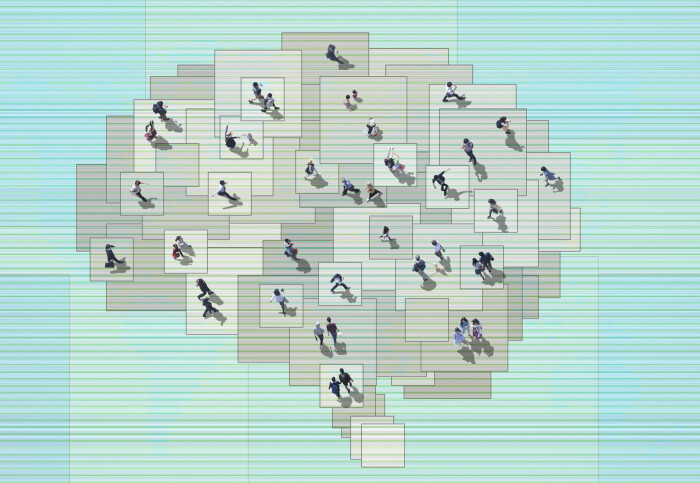Imperial joins international AI Alliance

Researchers and businesses join forces across the AI landscape to collaborate on making AI more trusted, responsible, transparent and auditable.
Imperial has joined a new international community of over 50 leading organisations representing researchers, technology developers and adopters committed to accelerating and disseminating open innovation across the AI technology landscape. Co-launched by IBM and Meta, the community – known as the AI Alliance – aims to accelerate progress and address safety, security and trust in AI, by supporting the open innovation that is needed for safe and responsible AI to benefit society.
We believe that community engagement is essential for making AI trusted, responsible, transparent, as well as auditable. We look forward to engaging with the Alliance community to help realise these objectives. Professor Bob Shorten Dyson School of Design Engineering
"We are delighted to be a founding member of the AI Alliance”, said Professor Bob Shorten, Head of Imperial’s Dyson School of Engineering. “At Imperial College London, we believe that community engagement is essential for making AI trusted, responsible, transparent, as well as auditable. We look forward to engaging with the Alliance community to help realise these objectives."
The Alliance brings together universities and research funding agencies, creators of AI toolkits, builders of the hardware and infrastructure needed for AI training and applications, the champions of frameworks that drive platform software, and the creators of some of today’s most used open models. It aims to build and support open technologies, enable developers and scientists to understand, experiment with and adopt open technologies, and advocate for open innovation with societal leaders, policy and regulatory bodies and the public.
"AI has been incredibly important for our world, helping people to live and to work. But we all must ensure that this technology is developed and used in a responsible, transparent, and open way,” said Dr Alessandro Curioni, VP of IBM Research Europe and Africa. “We need to work together to achieve that. That's the spirit and the mission of our AI Alliance, to bring together universities, research centers and businesses, globally, to create the AI of the future in the most responsible way.”
AI at Imperial
Imperial’s AI ecosystem comprises nearly 300 academics and 800 PhD/ postdocs working on the safe and productive development and deployment of AI, as represented by the College’s AI Network, alongside involvement with UK and global AI research collaborations with industry, non-profit and research institutions.
The spirit and the mission of our AI Alliance [is] to bring together universities, research centers and businesses, globally, to create the AI of the future in the most responsible way. Dr Alessandro Curioni VP of IBM Research Europe and Africa
The College’s enterprising ecosystem has provided a starting point for many AI companies over the past decade, some of which have grown rapidly, and others that have made quick exits. Imperial’s White City Campus is home to a new generation of AI startups and spinouts, and a number of companies applying AI to biotechnology. It will also host the recently announced AI Superconnector to help early career researchers turn their AI research into startup companies.
Imperial-X (I-X) brings together 100 researchers and over 30 new research projects in AI and innovation to combine Imperial’s strengths in foundational and applied AI to address interdisciplinary challenges and support novel industrial collaborations.
Imperial’s Artificial Intelligence Network convenes expertise from across faculties to provide an inclusive, holistic answer to how AI can help solve our planet's major challenges.
The science of data, how it is collected, curated, owned, and utilised is critical to the development of Large Language Models (LLMs). Imperial’s Data Science Institute provides foundational expertise in data science and engineering.
Imperial also supports the next generation of AI skills, by hosting the UKRI Centre for Doctoral Training in AI for Healthcare, as a partner in the UKRI Centre for Doctoral Training in Safe and Trusted AI, and as the location for a new UKRI AI Centre for Doctoral Training in Digital Healthcare.
Article text (excluding photos or graphics) © Imperial College London.
Photos and graphics subject to third party copyright used with permission or © Imperial College London.
Reporter
Natasha Martineau
Enterprise